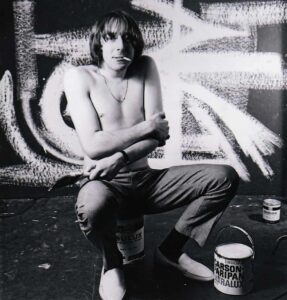Barry Fantoni, Creator of E.J. Thribb and Voice of Satire, Dies at 84
March 30, 2025 – Turin, Italy — Barry Fantoni, the multi-talented British satirist, cartoonist, poet, painter, novelist, and jazz musician best known for bringing to life the spoof obituary poet E.J. Thribb in Private Eye magazine, has died at the age of 84. He passed away peacefully at his home in Turin, Italy, on March 20, 2025, surrounded by his partner and creative collaborator, Katie Dominy.
Fantoni’s death marks the end of a dazzling and deeply unconventional career that stretched across seven decades, leaving a legacy that was as rich in irreverent wit as it was in artistic achievement. “Creativity,” he once said, “is the bedrock of my life—more than anything else.” And indeed, Fantoni’s life was one continuous act of creative rebellion, humor, and invention.
The Many Lives of Barry Fantoni
Born in Epping, Essex, in 1940 to an Italian artist father and a Jewish mother of French-Dutch heritage, Barry Fantoni was raised in South London. Even in childhood, he exhibited a prodigious appetite for art and satire. From sketching cityscapes on the rooftop of his family’s Brixton Hill flat to being expelled from Camberwell School of Art at 18 for drawing nude caricatures of the staff, Fantoni’s early years hinted at the brilliant, provocative mind he would become.

His formal studies resumed at the prestigious Slade School of Fine Art, but a brush with tuberculosis during travels in France—followed by a harrowing stint in a London hospital ward—left an indelible mark on him. Watching fellow patients succumb to the illness instilled in Fantoni a sense of urgency and purpose that never left him. “That’s where the drive came from,” he would later say.
Private Eye and the Birth of E.J. Thribb
Fantoni’s big break came in the early 1960s, when an art exhibition brought him to the attention of Private Eye editor Richard Ingrams. Hired initially for his visual talent, Fantoni quickly became an indispensable contributor to the magazine’s biting satire. But it was the creation of E.J. Thribb (17½)—the awkward, faux-naïve teenage poet who penned mock obituaries—that earned Fantoni enduring fame.
Each poem began with the now-iconic phrase, “So farewell then…”, and often included the brilliantly cutting line “That was your catchphrase.” These poems, though humorous, often captured something uncomfortably true about the fleeting nature of fame, media, and mortality. He even performed Thribb’s verses publicly, often with poet Roger McGough, whom he had known since playing saxophone with McGough’s band, The Scaffold, in 1967.
Fantoni once reflected that the catchphrase was, in fact, the ultimate satire: “That’s what really sums you up—and you weren’t anything more than that.”
Music, Painting, and Protest
Fantoni’s talents weren’t confined to the printed page. In 1966, he recorded the quirky pop single “Little Man in a Little Box,” penned by Ray Davies of The Kinks, which he performed as a warm-up act for the Spencer Davis Group. The song poked fun at the growing influence of television, a recurring theme in his critique of modern life.
A lifelong painter, Fantoni staged solo and group exhibitions throughout his life, including a celebrated show at the National Portrait Gallery in 2007. In 2012, he founded an avant-garde art movement called Depechism, which demanded that each painting be completed within a time dictated by the length of the canvas. The movement was part serious, part satire—a protest against what he saw as the hollow commercialism of the art world.
A Life Abroad, But Never Away
In 2016, Fantoni moved with Katie Dominy to Turin, Italy, in search of his Italian roots and a quieter life—but the work never stopped. From his riverside flat, he penned two memoirs (A Whole Scene Going On in 2019 and Breasts As Apples in 2023), published a book of satirical poems (Poems You May Have Missed, 2021), and wrote a comic novel about the world’s oldest private detective (Harry Lipkin, PI), set in Miami—a city he never visited due to his refusal to fly.
Even as age and health challenges caught up with him—he spent much of 2022 in hospital following a severe heart episode—Fantoni continued to work. “I have a huge pile of work ahead,” he wrote in an email just weeks before his death.
In life and in art, he was a relentless observer, a champion of the absurd, and a challenger of orthodoxy. He could find humor in the darkest corners of human experience, including death. He famously joked about his father’s passing from a heart attack while watching This Is Your Life, an irony his mother reportedly “wryly noted.” That kind of gallows humor defined both his work and his worldview.
Family and Final Days
Fantoni married Tessa Reidy in 1972; though they later separated, their union was a significant chapter in his life. In 1996, he met Katie Dominy, an editor and art journalist who became his partner and constant creative companion for the rest of his life. She survives him, along with the towering body of work he leaves behind.
Fantoni’s passing will undoubtedly inspire one last poem from his beloved alter ego, E.J. Thribb:

